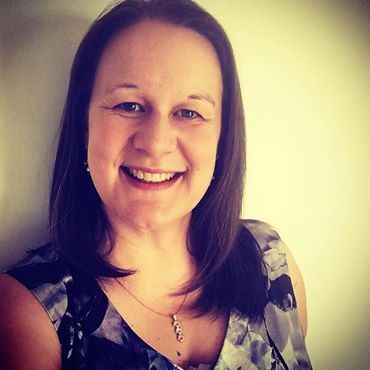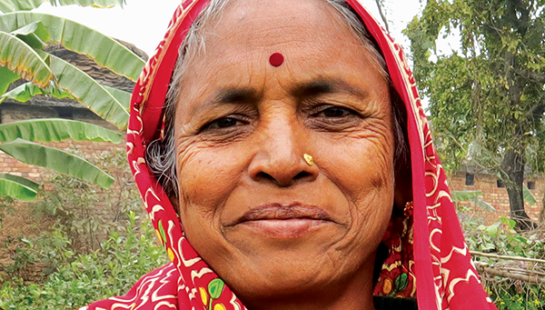Why Do We Have International Women’s Day?
Why do we need it? For me, it’s about celebrating women and it’s about naming the inequality women experience. I do this not because I am a feminist, which I am, but because I am a follower of Jesus. Jesus calls women and men to follow Him, and the biblical narrative invites us together to work towards the restoration and reconciliation of all things.
I have had the privilege of teaching and preaching the breadth of the Scriptures, which are full of invitations to both women and men to step into what God is doing. But there is one particular chapter of the Bible that I have been reluctant to focus on, not because I have any problem with the text itself, but because the way this particular passage has usually been used and interpreted, in my experience, has often created guilt, set an impossible standard, or limited the imagination of women and girls for God’s calling on their lives.
So, on this International Women’s Day, I thought I’d share some of my reflections on how Proverbs 31 might speak to women in a post-COVID world.
How Proverbs 31 Might Speak To Women In A Post COVID World
We need to start with the context of Scripture as a whole, this grand storyline of a God who created us male and female and invites us all to participate in His work, rest, and play. He has uniquely called and gifted each of us to be members of a wider community who together play our parts in His mission. In Proverbs 31 we get a picture of one faithful woman playing her part in her context.
We also need to consider the book of Proverbs as a whole. Using an apparently standard poetic technique of the time, early in the book both folly and wisdom are personified as women. After a middle section containing individual sayings applying wisdom to a multitude of everyday challenges and scenarios, the book ends with another picture of what wisdom looks like in practice, in the day-to-day, in the mundane, and the routines of life. So whatever else this poem is about, it is about the practical living out of faith and knowledge of God in a real time and place.
eshet chayil: A Statement Of Praise
The poem in Proverbs 31:10 starts with a statement of praise, in Hebrew eshet chayil. This has usually been translated as something like ‘wife of noble character’ or ‘woman of virtue’ as if it is setting a standard to live up to. A better translation would be ‘woman of strength’ or ‘woman of valour’ in keeping with how the word chayil is translated throughout the Old Testament in hundreds of other places, with only the references to women in Proverbs and Ruth treated this way. In Ruth 2:1 and 3:11 the KJV translates the exact same word in two different ways – “valiant” for Boaz and ‘virtuous’ for Ruth. While I would argue that both men and women are called to be both valiant and virtuous, it’s difficult to see how such a gendered translation decision can be justified. The NIV fares only slightly better with Boaz a ‘man of standing’ and Ruth a ‘woman of noble character’. Why not be consistent? If the author has deliberately chosen to echo our introduction of Boaz and his introduction to Ruth with the exact same word, why hide this resonance? It is worth noting how other assumptions might be at play.
A Biblical Times Equivalent Of ‘You Go, Girl!’
So, in contrast to a standard or list of boxes to tick, eshet chayil seems instead to be a cry of honour, almost a championing cry, perhaps it is even akin to, ‘You go, girl!’ This isn’t so much about what someone does but about the way they do it—with strength and power, in a way that inspires and receives affirmation from others.
It’s also important to note that this poem is about one specific woman, rather than every woman. It gives honour for what she has done. The Hebrew verbs throughout the poem are nearly all in the qal or perfect/completed tense, which is more commonly and appropriately translated as past. (e.g. ‘she bought a field’; ‘she provided for her family’). This helps us read the passage as a testament to a life well lived, rather than a generalised checklist for others to live up to. To me it finds an echo in Jesus’s affirmation of, ‘Well done, good and faithful servant’. It reminds of a funeral I attended for a woman from my church who had been a doctor, a missionary, a mother, a leader, and so much more. Hearing about her life didn’t make me feel guilt or pressure to do exactly what she had done, but it certainly inspired me to follow her example of faithfulness and courage in all circumstances. How might this poem do the same?
How Does Proverbs 31 Inspire And Challenge Us In Our Context?
First, I think we need to know who we are as women so that we can respond appropriately. We are created in the image of God, invited as full participants and co-creators in His worldmaking and restoration project. We each have a unique place within this, and we all bring a different lived experience from our brothers, to together contribute to the full flourishing of community.
We also need to acknowledge the challenges that women face, both personal and societal, that can make that harder. This is where we need to stop trying to be warm and fuzzy and name some realities that make me furious, and I believe make God furious too. God is seeking to bring about the reconciliation of all things, and a significant barrier to that right now is what is happening all over the world to women and girls.
Women make up the majority of the world’s poor. Women are exceedingly and disproportionately more likely to be bought and sold as slaves and to be refused education. Systematic rape is still being used as a weapon of war. 30 per cent of women worldwide have experienced sexual or physical violence from an intimate partner. In Australia, at least one woman a week is killed by her current or former partner. And in Nepal, women are still being ostracised from their communities during menstruation, leading to assault and death.
We as Christians need to start talking more about these issues.
What Does It Look Like To Be esyet chayil, In A Post COVID World?
For me, it has to start with the challenge to step up and speak out. To not be willing to be boxed in to one thing. We need to be seeking to respond to these realities in our own lives and in the wider world. To not succumb to the pressure as women to be in competition with one another, but to stand alongside and behind one another in all our diversity and differences.
We need to honour the women amongst us; those who lead and those who serve, those who have overcome obstacles and those who are breaking through barriers, those who are struggling just to get through the day and those who are striving against systemic injustice, those who have brought a smile to someone’s face and those who have changed the world. The daughters, the wives, the sisters, the mothers, the nieces and aunties, the friends and colleagues, the teachers, the students, the pastors, the pray-ers, the poets, and the preachers. Eshet chayil, every one of them.
An Encouragement For And To Everyone
The woman in the poem of Proverbs 31 isn’t a model for what every faithful woman should do with her life. That’s just not how the Bible works. But she is an encouragement to every woman, and every man, to wise and faithful living in whatever circumstance we find ourselves in. And she is a reminder to speak words of honour over the women of strength in our lives, today on International Women’s Day, and every day.
Adapted from a blog post first published by Melinda Cousins on her blog, “Thinking Out Loud…”



 Heather Keith,
Heather Keith,

 Steve Woods
Steve Woods